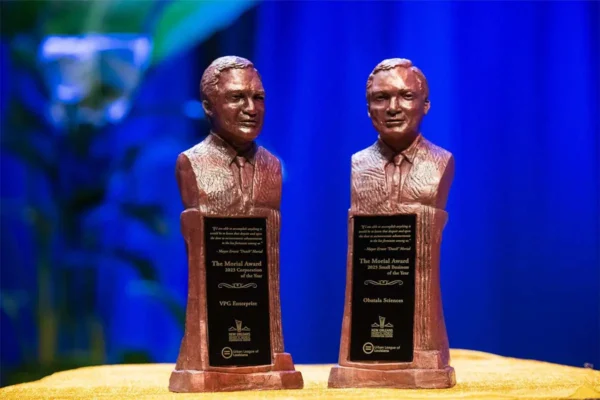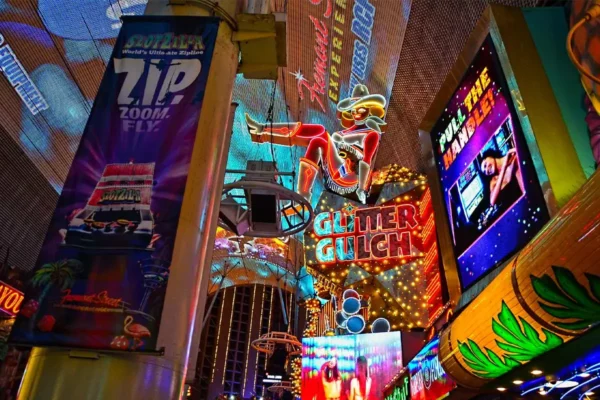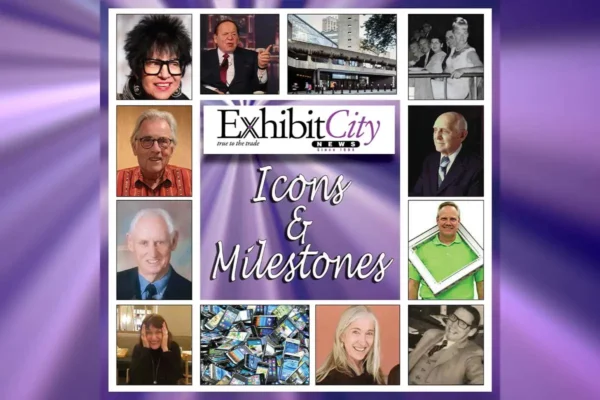 Speaking at the Center for Strategic & International Studies (CSIS) Homeland Security and Counterterrorism Program conference, the International Association of Exhibitions and Events (IAEE) Steven Hacker, president, CAE, FASAE, presented key industry research during a panel discussion, The Economics of Travel, in support of the possibilities for economic growth associated with the Visa Waiver Program and the opportunities it represents for business.
Speaking at the Center for Strategic & International Studies (CSIS) Homeland Security and Counterterrorism Program conference, the International Association of Exhibitions and Events (IAEE) Steven Hacker, president, CAE, FASAE, presented key industry research during a panel discussion, The Economics of Travel, in support of the possibilities for economic growth associated with the Visa Waiver Program and the opportunities it represents for business.
The CSIS event, Promoting Travel while Protecting National Security: Stimulating Travel, Streamlining Visa Processing, and Expanding the Visa Waiver Program, is a result of President Obama’s Executive Order calling on U.S. consular services to expand and expedite visa processing services, especially for travelers from fast-growing nations such as China and Brazil, as well as expanding the Visa Waiver Program and reciprocal travel programs as a result of the U.S. losing market share of spending by international travelers by 30 percent during the past 10 years.
Finding the delicate balance of increasing tourism and business travel with potential security concerns necessitated coordination across multiple departments, agencies and sectors. As a result, the program focused on the opportunities and challenges associated with these critical initiatives.
Hacker noted that more effective ways to ensure that buyers and sellers from abroad are provided with more convenient opportunities to participate in U.S.-based exhibitions must be developed. The goals of making the U.S. more competitive in the global marketplace and enhancing national security can work in tandem.
“Trade shows and exhibitions have become such a powerful engine of the U.S. economy that for the last seven quarters our growth has substantially exceeded that of the U.S. GDP,” said Hacker. “This is a reflection of the vital role that these international trade events based in the U.S. play – despite being thwarted by visa and entry obstacles.”
Hacker provided a clear picture of the current situation and the potential benefits of bringing international visitors to the U.S.
“Buyer and seller participation in the U.S. economy is essential if the U.S. is to fully recover from the Great Recession and restore significant forward momentum to the U.S. economy,” he said.
Citing specific data from a 2011 Oxford Economics research study to measure the economic losses of the exhibitions and events industry, and the nation, as the result of the inability of international visitors to secure visas to attend U.S. events, removal of the visa obstacles would increase sales at events by $2.6 billion. The average spending by each international buyer and attendee is more than $13,600, and the spending by international exhibitors averages more than $36,100.
By expanding the Visa Waiver Program, new sales to U.S. companies would jump $2.4 billion from the incremental attendance of overseas visitors, and the revenue generated would sustain 17,500 new jobs directly; 43,000 jobs overall. Additional benefits would be realized by the U.S. economy with three quarters of a billion dollars in state and federal taxes that would be created.
With added flexibility to the Visa Waiver Program, the vast numbers of Chinese, Indian and Brazilian citizens who continue to rise into the economic middle class will result in these new consumers demanding substantially more U.S.-produced products and services; therefore, it is likely that more Chinese, Indian and Brazilian citizens will have the desire to participate in U.S.-based trade events. The Visa Waiver Program must be expanded to include all of the nations around the world with whom the U.S. wishes to engage in international trade, and consideration to business travelers who routinely conduct business in the U.S. can secure a 10-year visa if their nation joins with in a reciprocity agreement should be pursued. Many international travelers from these nations may extend their stay for leisure purposes therefore increasing spending on U.S. goods and services.
In order to meet the need for increased demand for visas, the American infrastructure in these nations must be considered. Systematic options such as video interviews, mobile processing vans, and other technological advances will aid the influx and process automation. With sufficient infrastructure and processes the U.S. should be able to reduce the wait time for visa issuance to two weeks or 10 business days. The speed with which business transactions are conducted today must be reflected in this process.
“Two years remain before the President’s goal of doubling U.S. exports expires,” said Hacker. “Only by pursuing aggressive and creative solutions to the many visa hurdles that have kept so many legitimate business travelers out of the U.S. can we hope to achieve that very challenging goal.”





























